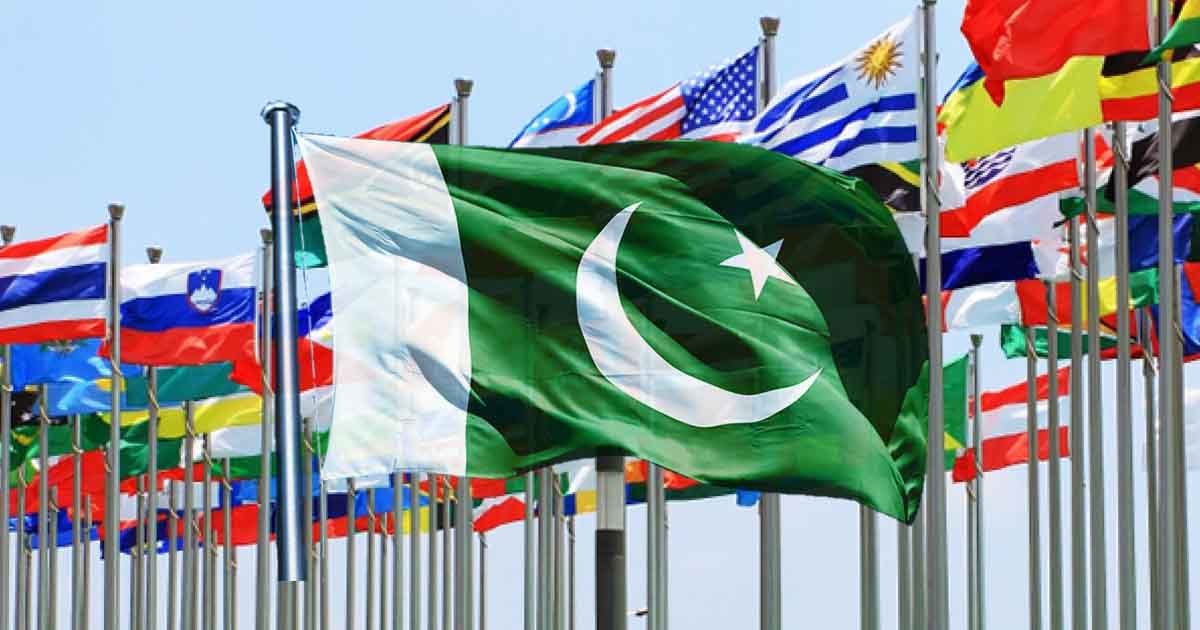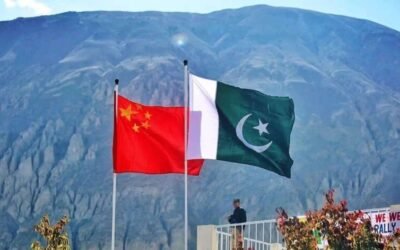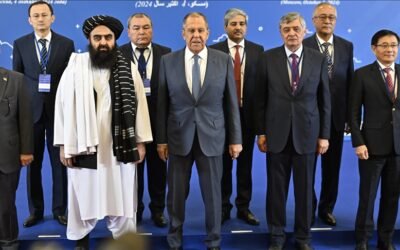The Economic Imperative Foreign Policy
To Pakistan, a stable economy has become a necessity in foreign policy. An economically strong country is able to negotiate better terms, attract foreign investment, and have a stronger relationship with other countries. Conversely, economic vulnerability curtails choices and causes the nation to become more reliant on others, particularly monetary organizations such as the International Monetary Fund (IMF).
Pakistan has had severe economic issues in the last couple of years. These entail high inflation, low foreign exchange reserves, as well as rising external debt. Pakistan’s foreign exchange reserves are still unstable, with a figure of about $9 billion as of July 2025, which is just enough to cover two months of imports. The nation has revisited the IMF once more, as it signed a short-term standby agreement in 2023 and currently discusses a longer Extended Fund Facility (EFF) in 2025.

Source: Dawn
This frequent bailout weakens the bargaining power of Pakistan in the international relations process. International business partners and investors typically take time before committing to long-term projects due to concerns about economic stability and policy inconsistency. Even countries such as Saudi Arabia, the UAE, and China have given financial aid, but they also demand reforms of their own, and this indicates that even friends demand economic discipline before they can lend a hand.
Re-establishing Relations with World Powers:
Pakistan is focused on rebuilding and reinforcing its ties with the great powers for its economic revival. Such alliances do not only mean diplomacy, but are also necessary to attract investment, financial assistance, and long-term stability.
China is Pakistan’s most important economic partner. Pakistan is at the center of the China-Pakistan Economic Corridor, the Phase-II of CPEC, which started in 2023, aimed at industrial cooperation, agriculture, and Special Economic Zones (SEZs) to increase exports and generate employment.
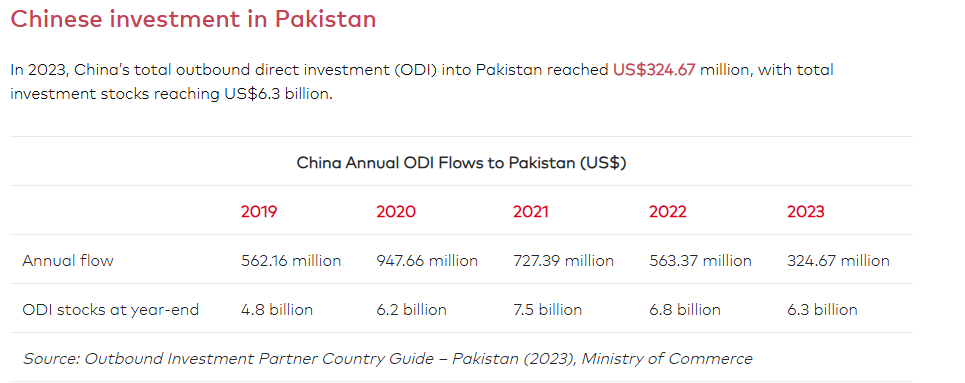
Source: China Briefing
Although this has been at a slower pace, China has still been investing, with 2 billion worth of new energy and transport projects being approved in early 2025.

Source: China Briefing
The relationship between Pakistan and the U.S. has not been smooth, particularly following the U.S. exit from the U.S. in Afghanistan. Nevertheless, it has changed to economic cooperation. The U.S. concluded some trade negotiations and offered Pakistan million dollars in development grants to help it become more resilient to climate change and transition to green energy. As the focus of the security cooperation has shifted away, economic diplomacy has taken its place in the bilateral relations.

Source: The Friday Times
Nations such as Saudi Arabia, the UAE, and Qatar have been critical in the assistance of the failing economy of Pakistan. Saudi Arabia made a 3-billion-dollar deposit in the central bank of Pakistan and agreed to invest 5 billion dollars in the energy and mineral industry within five years.

Source: Reuters
The UAE is also committed to investing in logistics and port infrastructure. These Gulf States not only perceive Pakistan as a strategic partner but also as a long-term economic partner as long as Pakistan continues to reform its economy and associated matters .
Pakistan has a significant trading partner in the EU, particularly in the GSP+ scheme, where Pakistan enjoys duty-free trade in European countries. Nonetheless, the EU has attached the provision of human rights, labor rights, and governance reforms to the continued access. In 2024, the EU granted the GSP+ until 2027, but in a very closely monitored way. Pakistan has to strike the right balance between internal demands and external demands to maintain trade relations.
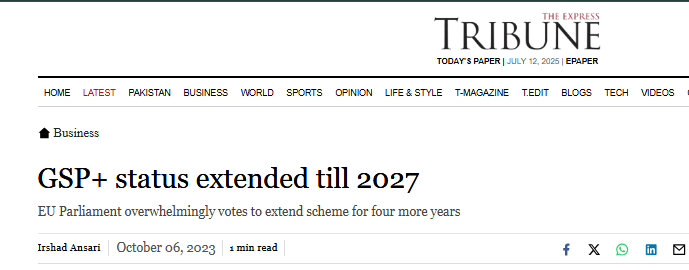
Source: Tribune
Regional Economic Diplomacy
In conjunction with international alliances, Pakistan is also attempting to enhance its economic relations with its neighbors and regional actors. Regional economic diplomacy will provide Pakistan with the opportunity to increase trade, enhance connectivity, and decrease the reliance on Western financial institutions. These are, however, hampered by political tensions and security issues.
India: Political wrangles hinder trade potential
Although Pakistan and India are geographical neighbours, they do not have a lot of trade relations with each other owing to political problems that have existed between these countries, especially due to the issue of Kashmir. The two countries suspended bilateral trade from 2019.
Various economists and businessmen of Pakistan have demanded the opening of trade to relieve the economy, particularly in case of increasing inflation and scarcity of basic commodities. Nevertheless, the political climate is a significant challenge. Normalisation of trade with India would be beneficial to both countries by lowering the costs of trade and increasing the accessibility of goods.
Iran and Central Asia: Opening the Energy and Trade Routes
Pakistan has been attempting to strengthen its relations with Iran and the Central Asian Republics (CARs), particularly to cooperate in energy. Efforts such as the long-awaited Iran-Pakistan gas pipeline and CASA-1000 (Central Asia-South Asia power project) are some of the projects that aim at linking Pakistan with its energy-rich neighbors. Moreover, Pakistan is also trying to establish trade routes via Afghanistan to reach Central Asia, which may lower the cost of trade and diversify the market.
Afghanistan: Interdependence in Security and Economics
Pakistan has its regional trade plans through Afghanistan. Cross-border trade was also high in 2024 and 2025, but open borders meant for trade were used for cross-border insurgency by militants. Pakistan is insisting on a stable and cooperative Afghanistan, so that it can access trade to Central Asia. Nevertheless, due to the persistence of militant organizations such as TTP and tensions along the border, it has been hard to engage in economic activity on a steady basis. Nonetheless, Pakistan has maintained open border trade and transit facilities, due to the economic significance of connectivity.
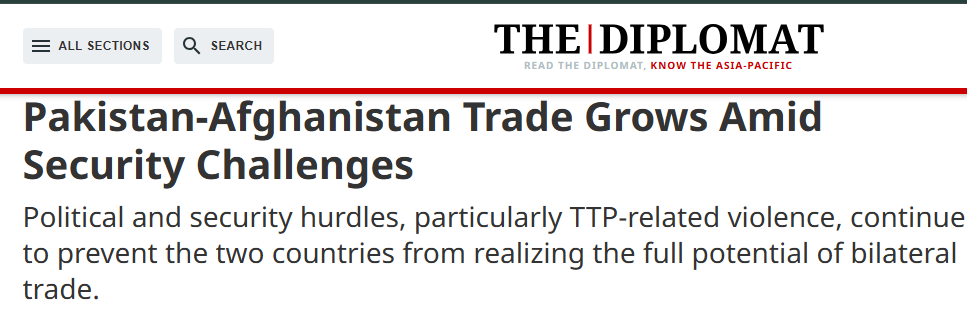
Source: The Diplomat
Turkey and Southeast Asia: Emerging Markets
Pakistan has recently been trying to diversify economic relations with other, geographically distant countries, in addition to its neighbors. An example of the above is Turkey, which signed a preferential trade agreement with Pakistan. The two countries are also experiencing an increase in the amount of trade done between them, particularly in textiles, machinery, and construction services. Pakistan also collaborates with the ASEAN countries with the aim of accessing their huge consumer markets and investing in their manufacturing and IT industries.

Source: ASEAN
Roadblocks to Economic Diplomacy
Policy Inconsistency and Political Instability
This is because the government is prone to change, and the economic policies keep on changing and which does not encourage long-term foreign investment. Absence of political agreement may slow down some of the much-needed reforms, such as tax restructuring and privatization.
Regional Unrest and Security Threats
The constant militant attacks, particularly in Balochistan and Khyber Pakhtunkhwa, carried out by proxy militant organisations i.e., FAK and FAH, harm investor confidence and project safety. Increased border tensions, insurgency of militants, risk of terrorism, threat to life and material, makes it difficult to trade with neighbors such as Afghanistan and Iran.
Weaknesses in the Structure of the Economy
Pakistan is not able to sustain growth because of low tax collection, huge fiscal deficits, and poor exports. Financial stability is weakened by excess dependence on imports and informal sectors of the economy.
Trust Deficit External
The IMF bailout and unfinished reforms have been a blow to the reputation of Pakistan in the eyes of foreign lenders. International partners require a steady application of commitments prior to further assistance.
Conclusion
The economy of Pakistan is now the key to its capability of formulating an effective and independent foreign policy. With the increasing global and regional issues it has to concentrate on ensuring that the economy is stable—only possible through a series of reforms, regional integration, and better governance. Greater connections with such world powers as China, the U.S., and the Gulf countries, and regional integration, can only be effective when accompanied by credible economic developments. Pakistan will only have limited economic diplomacy until the internal weaknesses are addressed in terms of political instability, security issues, and structural imbalances.

